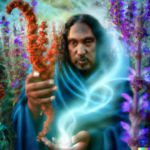Salvia, commonly known as sage, is a powerful psychoactive plant that has gained attention for its mind-altering effects. In this comprehensive article, we will delve into the various aspects of salvia, including its effects, legal status, risks, and safe usage in the state of Vermont.
We will explore both the short-term and long-term effects of salvia, the laws and regulations surrounding its use in Vermont, as well as the potential legal and health risks associated with its consumption. We will provide insights into how individuals can use salvia safely, along with alternative options to consider. So, if you’re curious about salvia and its implications in Vermont, this article is a must-read for you.
What is Salvia?
Salvia, also known as Salvia divinorum, is a psychoactive plant that has gained popularity for its hallucinogenic effects when consumed.
Originally found in the cloud forests of Mexico, Salvia has been used traditionally in shamanic rituals by the Mazatec people for centuries. The main active compound, salvinorin A, triggers intense but short-lived hallucinations and altered perceptions. When ingested, smoked, or chewed, it produces strong dissociative effects, leading to vivid visionary experiences. Its effects are highly potent, often described as more rapid and intense compared to other hallucinogens, resulting in altered sensations of time, space, and self.
What are the Effects of Salvia?
The effects of Salvia, a potent psychoactive substance, manifest in both short-term experiences and potential long-term implications on the user’s well-being.
In the short term, an individual may have intense hallucinations, altered perception of time and space, and a sense of detachment from reality. These experiences can be overwhelming and disorienting.
In the long term, there is concern about the potential impact on mental health, such as increased anxiety or depressive symptoms. Repeated use of Salvia may lead to tolerance, dependence, and withdrawal symptoms, affecting the user’s overall quality of life. It is essential to consider both the immediate and prolonged effects when discussing the use of Salvia.
What Are the Short-term Effects of Salvia?
Short-term effects of Salvia encompass altered perception, hallucinations, and heightened sensory experiences, often occurring shortly after ingestion or inhalation of the substance.
Users may experience distortions in time, space, and reality, with sensations of being transported to different dimensions or experiencing moments of time dilation. Visual and auditory hallucinations can range from mild to intense, with colors appearing more vivid and sounds becoming distorted. Some individuals report feeling disconnected from their bodies or having a sense of merging with the environment around them. These effects can be overwhelming and disorienting, leading to a loss of coordination and difficulties in distinguishing between the real and the imagined.
What Are the Long-term Effects of Salvia?
Long-term effects of Salvia usage may pose health risks such as cognitive impairment, psychological distress, and potential addiction, impacting the user’s overall well-being over an extended period.
These consequences can be particularly concerning as they may affect an individual’s cognitive function, leading to memory problems, difficulty concentrating, and impaired decision-making abilities. The psychological risks of prolonged Salvia use may include mood disturbances, anxiety, and even the onset of psychiatric disorders. The potential for addiction means that users may struggle to control their use and experience withdrawal symptoms when attempting to stop. Therefore, it is crucial to understand and address the long-term impacts of Salvia use to protect individuals’ health and well-being.”
Is Salvia Legal in Vermont?
The legality of Salvia in Vermont is subject to specific regulations and laws that govern its possession, purchase, and sale within the state.
Individuals should be aware that Salvia is classified as a controlled substance in Vermont, and its use for recreational purposes is prohibited. The state has implemented strict regulations to control the distribution and possession of Salvia due to its hallucinogenic properties. The legal framework surrounding Salvia in Vermont also considers factors such as public health concerns, potential for abuse, and the impact on youth. These elements play a significant role in shaping the laws and regulations governing the use of Salvia within the state.
What Are the Laws and Regulations Surrounding Salvia in Vermont?
The laws and regulations surrounding Salvia in Vermont encompass legislative measures, classification as a controlled substance, enforcement protocols, and potential bans on its distribution and usage.
Salvia divinorum, commonly known as salvia, is classified as a Schedule I controlled substance in Vermont, making its possession, sale, and distribution illegal. Vermont has enacted legal measures to regulate and restrict the availability and use of salvia due to its psychoactive properties. Law enforcement agencies diligently enforce these regulations to prevent the unauthorized cultivation, distribution, and consumption of salvia.
There have been discussions about potential bans and restrictions on salvia-related products to further address public health concerns and ensure compliance with state laws.
What Are the Risks of Using Salvia in Vermont?
Using Salvia in Vermont carries inherent risks, including potential legal consequences and health-related hazards, necessitating a comprehensive understanding of the associated dangers.
Many people are unaware that Salvia is classified as a controlled substance in Vermont, and its possession, sale, or distribution can lead to severe legal consequences. The use of Salvia is associated with adverse health effects such as hallucinations, paranoia, and increased heart rate. The lack of regulation and quality control in obtaining Salvia poses the risk of ingesting contaminated or impure substances, further increasing the potential health hazards. It is essential for individuals to be well-informed about these risks before considering the use of Salvia in Vermont.
What Are the Potential Legal Consequences of Using Salvia in Vermont?
The potential legal consequences of using Salvia in Vermont involve penalties for possession, sale, and potential restrictions on its usage as outlined by state laws and enforcement measures.
Posession of Salvia in Vermont is classified as a misdemeanor, punishable by fines and possible jail time, depending on the amount possessed. The sale of Salvia is strictly prohibited, and those found guilty may face severe legal consequences. It’s essential to note that law enforcement agencies in Vermont actively monitor the use and distribution of Salvia, making it crucial for individuals to understand and abide by the state laws to avoid facing the legal repercussions.
What Are the Health Risks of Using Salvia in Vermont?
Using Salvia in Vermont poses health risks such as psychological distress, cognitive impairment, and other psychoactive effects that may impact the user’s well-being and mental health.
The psychological impacts of using Salvia in Vermont can include hallucinations, paranoia, and disorientation, which can lead to heightened anxiety and fear. Cognitive challenges may arise, affecting memory, decision-making, and overall mental clarity. The broader psychoactive effects can also result in altered perceptions, mood swings, and potentially dangerous behaviors. These combined risks highlight the importance of understanding the potential consequences of Salvia use in Vermont and the need for informed decision-making when it comes to substance use.
How Can Someone Use Salvia Safely in Vermont?
Using Salvia safely in Vermont requires adherence to precautionary measures, informed decision-making, and consideration of potential alternatives to minimize associated risks.
It is important to be mindful of the dosage and potency of the salvia being used, as well as the setting in which it is consumed. One should always have a trusted person present to help in case of any adverse effects. Exploring alternative options, such as meditation or aromatherapy, can provide similar experiences without the potential risks associated with Salvia. Engaging in open and honest discussions with healthcare professionals and seeking reputable sources of information can further support informed decision-making regarding the use of Salvia.”
What Precautions Should Be Taken When Using Salvia in Vermont?
Taking precautions when using Salvia in Vermont involves understanding legal regulations, dosage considerations, and potential interactions with other substances to ensure safe and responsible usage.
Regulatory compliance is crucial, as Salvia may be subject to specific laws and restrictions in Vermont. It’s essential to stay informed about any changes in legislation, ensuring that your usage aligns with legal requirements. In addition, understanding the appropriate dosage is vital to avoid any adverse effects. It’s important to start with a low dose and gradually increase to assess individual tolerance and sensitivity. Being mindful of potential interactions with other substances, especially prescription medications and alcohol, is imperative for one’s overall well-being.”
What Are the Alternatives to Using Salvia in Vermont?
Exploring alternatives to using Salvia in Vermont may involve considering medicinal or recreational options that align with individual preferences and wellness goals.
For medicinal purposes, individuals in Vermont can explore the use of CBD products, which have gained popularity for their potential health benefits without the psychedelic effects associated with Salvia. Mindfulness practices such as yoga and meditation can offer alternative ways to promote wellness and relaxation.
Recreational alternatives may include engaging in outdoor activities like hiking, fishing, or participating in community sports. These activities not only provide physical exercise but also contribute to emotional well-being and social connections.
Frequently Asked Questions
Is Salvia legal in Vermont?
No, Salvia is not legal in Vermont.
What is Salvia?
Salvia is a plant commonly used as a psychedelic drug. It is also known as “sage of the diviners” or “diviner’s sage.”
Why is Salvia illegal in Vermont?
Salvia is considered a Schedule I controlled substance in Vermont, meaning it has a high potential for abuse and no accepted medical use.
Can you purchase Salvia for medical or research purposes in Vermont?
No, the sale of Salvia for any purpose is prohibited in Vermont. It is also illegal to possess or distribute for these purposes.
What are the penalties for possessing or distributing Salvia in Vermont?
Possessing or distributing Salvia in Vermont is a criminal offense and can result in fines and/or imprisonment. The severity of the penalties depends on the amount of Salvia involved.
Are there any legal alternatives to Salvia in Vermont?
No, there are currently no legal substitutes for Salvia in Vermont. It is best to avoid any products claiming to be a legal form of Salvia, as they may contain ingredients that are harmful or illegal.
John Marston, a seasoned writer since 2009, has penned hundreds of articles on Salvia Divinorum across the web. As a full-time writer at a prominent online salvia retailer, he continues to contribute valuable insights, combining expertise and passion to unravel the diverse facets of Salvia Divinorum. Beyond his writing, John serves as a budtender in the cannabis industry.




